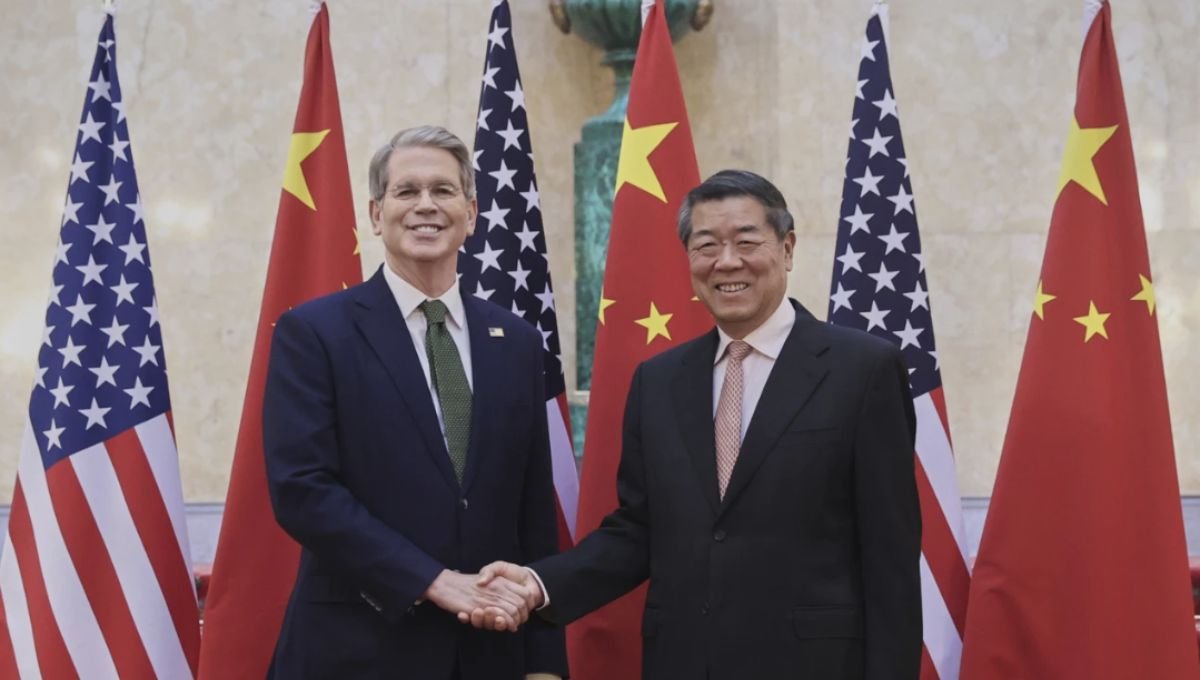The United States and China have finalized a trade agreement that will make it easier for American companies to acquire rare earth minerals and magnets from China—key materials for manufacturing and microchip production—according to U.S. Treasury Secretary Scott Bessent.
The agreement follows a period of rising tensions, during which China responded to U.S. tariffs by slowing the export of rare earths. These materials are vital for various U.S. industries, from electronics to defense.
Speaking on Fox Business Network, Bessent explained that the deal was reached after a phone call between President Donald Trump and Chinese President Xi Jinping, followed by in-person meetings between their negotiating teams in London. “The magnets will flow,” Bessent said. “That was part of the deal—lower tariffs and a renewed commitment to rare earth exports.”
The deal, which Trump had mentioned earlier this month, clears the path for further trade negotiations. In response, the U.S. has eased some restrictions, including the suspension of certain high-tech sales to China and halting efforts to revoke visas of Chinese students on American campuses.
Bessent described the development as part of a broader “de-escalation” between the two economic powers. U.S. Commerce Secretary Howard Lutnick confirmed in a Bloomberg TV interview that the deal had been signed earlier in the week.
China’s Commerce Ministry, in a statement Friday, confirmed that both sides had “further clarified the framework” of the agreement. The ministry stated that China would process export permits for rare earths in accordance with existing laws, and that the U.S. had agreed to lift several restrictions previously imposed on China.
Initial discussions in Geneva in May helped delay planned tariff hikes that had threatened to freeze major trade flows. Later talks in London refined the terms, with rare earth export controls becoming a central issue after China introduced a new permitting process for seven key minerals in April. The 45-day permit approval timeline caused delays in shipments, which posed a risk to the supply chains for high-tech industries in the U.S. and globally.
While China hasn’t eliminated the permit requirement, it retains the flexibility to adjust approval times based on the state of U.S.-China relations. Sun Yun, a China expert at the Stimson Center, noted that Beijing prefers to maintain discretion. “That’s the Chinese style,” she said. “If everything’s smooth, permits go through. If things go south—like U.S. arms sales to Taiwan—the permits disappear.”
In a related development, China recently added two more chemicals to its list of controlled fentanyl precursors, tightening oversight on substances that have drawn U.S. criticism. Trump has tied the fentanyl issue directly to tariffs, imposing 20% duties on Chinese imports in response to the flow of precursor chemicals to Mexican drug cartels, which produce fentanyl for the U.S. market.
The broader trade agreement, originating from Geneva, also aims to unwind some of the retaliatory tariffs both countries had enacted during Trump’s escalation of the trade war. However, not all duties are being removed—some, such as those tied to fentanyl-related trade and metals like steel and aluminum, remain in place.
The economic costs of the trade standoff are mounting on both sides. The U.S. economy shrank at a 0.5% annual rate in the first quarter, partly due to a spike in imports as businesses rushed to secure goods ahead of potential tariffs. Meanwhile, Chinese industrial profits dropped over 9% in May compared to a year earlier, with automakers suffering significant losses. For the first five months of the year, factory profits were down more than 1%.
Despite the challenges, officials remain optimistic about expanding trade ties. President Trump and other leaders have said more deals are on the horizon, including with countries like India. “We’re going to have deal after deal after deal,” Lutnick said.
Also Read:
High winds and sandstorms prompt Beijing to cancel hundreds of flights and close parks














